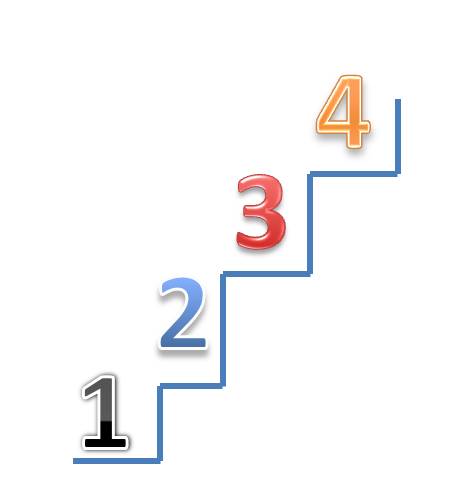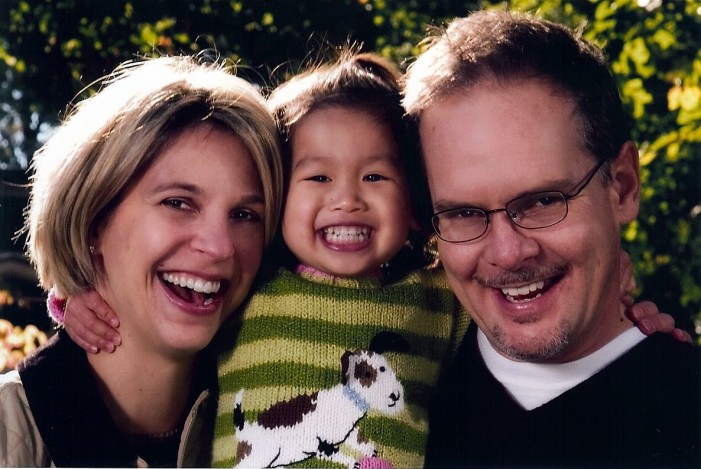Last Saturday, I was at a parent training by a new therapist in town. I wanted to check out her parentingphilosophy before referring our parents to her. (By the way, she was right on target with brain development, how trauma affects neurons, etc… — all the stuff I have been writing about.) During the long lunch break, I was in the lobby practicing my new hobby — crochet — when, in the classroom next door, I began to overhear three couples talking about parenting. I was dismayed to hear about how they were using a very strong behavior modification program that employed a level system. Each level had increasing restrictions or privileges in response to whichever behavioral direction the child happened to be headed. One mother was talking about “busting” her son from a level 3 down to a level 1 for one infraction. This is a very regimented approach to parenting and was popular 20-plus years ago, before research taught us that abuse, neglect and trauma changes the brain in ways that prevent it from responding effectively to behavior modification.
I began to reflect on why this parenting style was still drawing parents. One reason, I think, is that the clear-cut rules of a level system can be easier to learn and administer. For example, swearing might drop a child down a level that involves the loss of privileges. Then, if the child made no other infractions for, say, a week, the child could be moved back up a level and regain the lost privileges. I think it can also provide parents with a false sense of control. I say false because that control is only temporary. When kids reach adolescence, it becomes harder and harder to impose that kind of control. Another reason I think it could attract some parents is because it does not require the parent to look at how they were parented. Looking at how our parents parented us and becoming mindful of their mistakes could seem disrespectful. Or some of us may have experienced parental abuse that is hard to revisit, even as an adult. It could be a mistaken belief that the past is the past and there‘s no reason to stir things up again. Or maybe they don’t know how amazingly helpful it is to examine how they were parented, which can provide insight and make their own parenting much more successful.
Whatever the reason, if parents don’t develop mindfulness or insight into why they overreact to their child’s mistakes, they cannot lead their child to better choices.
Yet another reason parents may be drawn to this approach is this: when an adopted child misbehaves, a level system helps to preserve emotional distance. This gets complicated; I’ll try my best to explain. If a child doesn’t know how to attach, a parent may be unconsciously afraid of getting emotionally hurt by the child’s rejection. A behavior modification approach doesn’t require as much parental investment of emotional energy or love toward the child. So if things don’t work out, it is easier to blame the child by saying, “I tried that. It didn’t work.” With this approach, a parent is also not required to be as emotionally available (think emotionally vulnerable) when the child makes a mistake; the parent does not have to comfort the child, help her calm down, or guide the child through a re-do. Ultimately, the parent does not have as much personal investment in the behavioral outcome.
Continually, I find trust-based parenting by Karyn Purvis to be the most effective parenting approach. A key to this approach is that it encourages parents to develop mindfulness. This is the ability to be in the moment, thinking about or observing the way you are responding to your child’s behaviors. If you are mindful, then you are able to think about how to respond to your child. To take a moment and ask yourself, what is it that my child needs? What is your child’s behavior reflecting about his or her internal experience: low blood sugar, thirst, tiredness, over-stimulation, a sensory irritation, is an old trauma being triggered? If your child is old enough, you can ask her if she thinks she’s hungry, etc. This helps children learn more about themselves and develop an internal locus of self-regulation (emotional control). This builds skills in your child that eliminate the need for the tight control and rigid structure that some day, you will not be able to provide.
To further explore the concept of mindful parenting, check out these resources:
“The Conscious Parent” by Shefali Tsabary, Ph.D.
“Out of Control: Why disciplining your child doesn’t work and what will” by Shefali Tsabary, Ph.D.
“No Drama Discipline” by Dan Siegel, M.D. and Tina Bryson, Ph.D.
The Conscious Parent – Dr. Shefali Tsabary … – YouTube▶ 51:24
www.youtube.com/watch?v=biZ3LJPcd8A
Shefali Tsabary: Imperfect Parenting is … – YouTube▶ 45:17
www.youtube.com/watch?v=QIvZbn-sdAo
Dan Siegel on Mindful Parenting 7 different YouTube videos in one spot
Abbie Smith, LCSW | Former Holt team member


